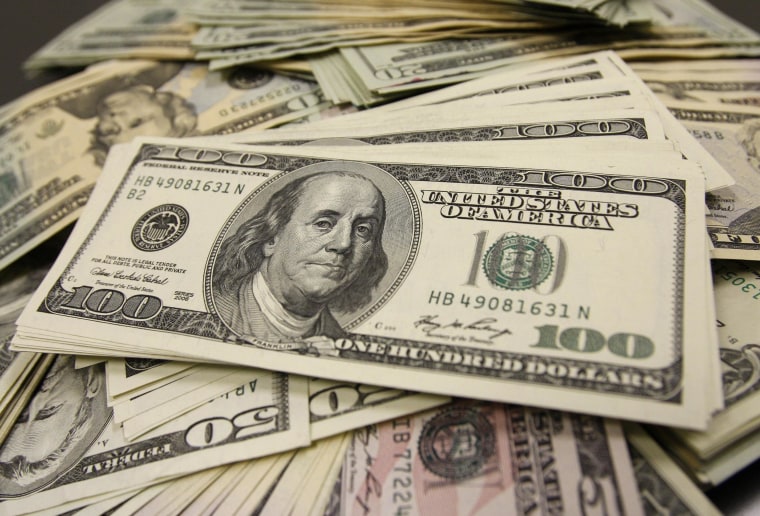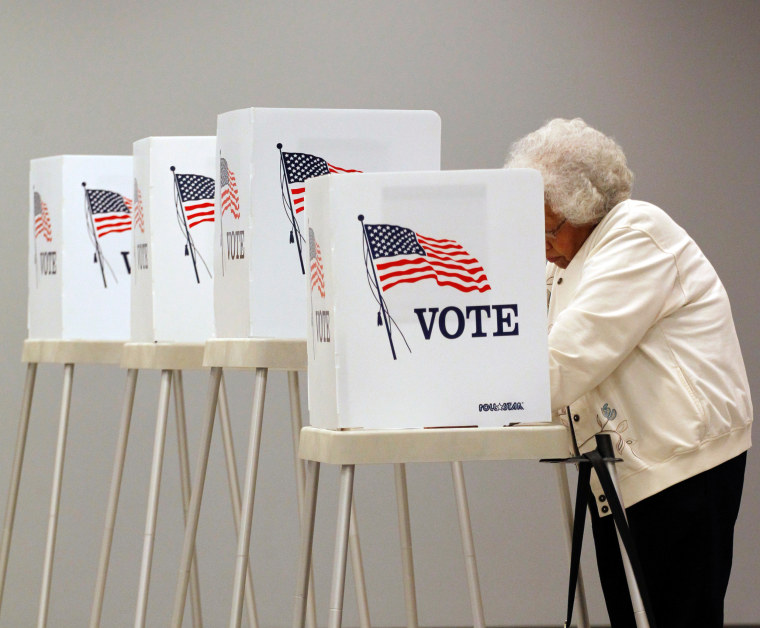A version of this story was originally published by The Center for Public Integrity, a nonprofit, nonpartisan investigative news organization in Washington, D.C.
The Democratic and Republican parties certainly don’t agree on how to run the country, but they are in sync when it comes to capitalizing on a new law letting them raise eight times as much money from rich donors than before.
The new money technically must be used only for specific purposes, such as legal expenses and improvements to party headquarters. The limits are, however, murkier than they seem, with some lawyers saying the money could legally pay for some election-related costs such as opposition research and data mining.
Click Here to Read the Center for Public Integrity's Version of This Story.
And the Federal Election Commission, tasked with regulating and enforcing federal campaign finance laws, is at an impasse over whether and how to issue rules governing the new party accounts. As a result, decisions about spending are pretty much up to the parties and their lawyers.
"The parties will do what they always do, which is use these new accounts as slush funds to pay for anything they feel like paying for that they can possibly get away with arguing falls within the meager constraints of the plain language of the statute,” said Paul Ryan, senior counsel for the Campaign Legal Center, a nonpartisan campaign finance reform group.
The ‘Cromnibus’
Their opportunity comes thanks to a December stocking-stuffer from Congress: higher contribution limits via a series of new accounts, jammed through as part of a must-pass appropriations bill.
The language on limits was on page 1,599 of a 1,603-page spending bill widely known as the “cromnibus.” The new law allows parties to accept more than $800,000 per donor per year, compared to $97,200 under the old limits.
The catch: the increased contributions go into special accounts that pay for expenses related to presidential nominating conventions, election recounts and “other legal proceedings,” and “the construction, purchase, renovation, operation and furnishing of one or more headquarters buildings.”

The accounts give parties the ability to take six-figure contributions, easing restrictions they’ve chafed at since reform legislation in 2002 curtailed their fundraising ability.
“There’s a bipartisan agreement among … party leaders that they would like more money,” said Michael Malbin, head of the nonpartisan Campaign Finance Institute. “That’s not surprising. And it’s certainly easier to get that money quickly by going to large donors.”
Republicans, especially, have been aggressively raising cash through these new accounts — more than $16 million so far this year compared to about $1.7 million for Democrats, according to a Center for Public Integrity review of federal campaign finance filings.
Expect a lot more in coming months.
Republicans, including members of leadership such as House Speaker John Boehner and Majority Whip Steve Scalise, have snagged six-figure contributions for the new funds via joint fundraising committees that funnel the proceeds to the National Republican Congressional Committee, the party’s House campaign arm.
So far, many of the donors that have given big to the party committees — casino magnate Sheldon Adelson, coal executive Joseph Craft III, hedge fund billionaire Paul Singer, billionaire environmentalist Tom Steyer, Arkansas investor Warren Stephens, financier Donald Sussman — also have a history of writing big checks to super PACs.
The impact of the higher limits will inevitably be more money made available for expenses directly related to elections. Republicans have used money from the convention and headquarters accounts, for instance, to cover some staff salary and benefit expenses — money that would have previously come from general funds.
FEC Inaction
FEC commissioners acknowledge they’re gridlocked on writing rules that regulate how political parties use their new accounts.
Republican Commissioner Lee Goodman said he would only consider engaging in a rulemaking process around the new accounts as part of a comprehensive review of regulations about political parties that would also address “onerous regulations on state and local political parties.”
Republican Commissioner Caroline Hunter, who sits on the commission’s regulations committee, said she wouldn’t vote to change the rules this election cycle.
Four of the six FEC commissioners must vote to affirm rules, and the agency’s three Republicans rarely break ranks.
"The parties will do what they always do, which is use these new accounts as slush funds to pay for anything they feel like paying for that they can possibly get away with arguing falls within the meager constraints of the plain language of the statute."
FEC Chairwoman Ann Ravel, a Democrat, said the agency needs to create new regulations around the new accounts, especially regarding how the money can be spent and whether it can be transferred to other accounts — something that’s already happening.
In the absence of FEC action, the Democratic and Republican parties are free to interpret Congress’ fundraising account changes as they please.
And the parties refuse to reveal their strategies. Officials from the six national party committees either did not comment on the new accounts or referred the Center for Public Integrity to their campaign finance filings.
But the parties have a history of working together on campaign finance issues that affect them both, either publicly at the FEC or behind closed doors.
John Ryder, the current general counsel of the RNC, said he has participated in RNC discussions about the new accounts “to a limited degree,” though he said the RNC’s in-house counsel has taken the lead. He acknowledged the two parties share a “common institutional interest,” though declined to be more specific.
“People need to be both creative and cautious as they approach this,” he said, stressing that he would speak only generally.
Joseph Sandler, a former general counsel of the DNC, said that during his tenure, party lawyers worked together on issues such as these, adding “I would not be surprised” if the parties are doing so now.
The purposes of the new accounts sound straightforward enough, but the potential for creative interpretation is easy to find — depending on how lawyers choose to read the law.
Take, for example, the headquarters account.
The account could potentially fund data mining or opposition research, according to an update issued in December by Covington & Burling’s election law practice.
“This is the account to watch to determine how much of an impact these amendments will have on the balance of power between national parties and super PACs,” the firm’s lawyers wrote.
The Center for Public Integrity is a nonprofit, nonpartisan investigative news organization in Washington, D.C. To read more of their work on national security, go here or follow them on Twitter.
